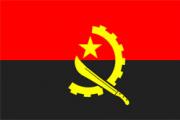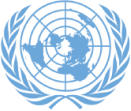Statement by
H.E. Mr. Manuel Domingos Augusto
Secretary of State for External Relations
of the Republic of Angola
at the Security Council Open Debate on
Preventing Catastrophe: A global agenda for stopping
the proliferation of weapons of mass destruction by
non-State actors
New York, 15 December 2016
Mr. President,
We commend Spain for convening this meeting on a critical issue of extreme concern for the international community, and welcome Mr. Alfonso Dastis, Minister for Foreign Affairs and Cooperation of Spain for presiding over this important meeting.
We thank the Deputy Secretary-General Mr. Ian Eliasson and the other briefers for their important contributions to the debate.
The resolution 2325 that the Security Council just unanimously adopted is yet another landmark document to strengthen cooperation in addressing the threat of terrorism and that non-State actors may acquire, develop, traffic in or use nuclear, chemical, and biological weapons and their means of delivery, while endorsing the 2016 Comprehensive Review on the status of implementation of resolution 1540 (2004).
Mr. President,
The theme selected by the Spanish presidency for this Debate, Preventing catastrophe by stopping proliferation of weapons of mass destruction to non-state actors is very timely.
In this respect, multilateral efforts, cooperation, partnerships and sharing of best practices, in the pursuit of our collective security are key and resolution 1540 was groundbreaking when adopted in 2004, translating a renewed awareness and the international community's resolve to address this threat.
Since its adoption, significant progress was made in applying a collective response, as demonstrated by most Member States through the submission of reports and the implementation of legislative and operational measures, in compliance with the resolution.
Mr. President,
The 1540 Committee has made, over the years, a tangible contribution to progress in the resolution's implementation. The ten-year extension of the 1540 Committee's mandate through Resolution 1977 (2011) further contributed to the institutionalization of the Committee, which became an essential part of the international non-proliferation efforts.
As the Comprehensive review highlights, there has been a general increase in measures undertaken by States to prevent non-state actors and terrorists from gaining accesses to WMDs.
The dialogue between the 1540 Committee and Member States as further promoted the States ownership of the anti-proliferation strategies.
The challenge encountered by the Committee, has been the decrease of assistance requests by States, a situation that requires more attention and resources in order to enable the assistance mechanisms to deliver effective responses.
Concerning international cooperation, the Committee notes the importance of the provision of technical assistance through regional and sub-regional organizations a factor which could improve the assistance mechanisms being provided with the aim of o more sound implementation of the resolution.
Mr. President,
While lagging behind in implementing the provisions of resolution 1540, there is a concerted effort by the African countries to improve their performance and, in this regard, in April 2016, the African Union held a conference on the implementation of the Resolution in Africa, with the support of the United Nations Office for Disarmament Affairs and the 1540 Committee.
The conference also focused on addressing the assistance requirements presented by the AU Member and gather the views and contributions for inclusion in the 2016 Comprehensive Review.
The Republic of Angola is deeply concerned with the issues of disarmament and non-proliferation of WMDs. It is a State Party to the main International Conventions on Weapons and Disarmament, especially the NPT, the Pelindaba Treaty of Africa as a Nuclear Free Zone, and more recently, the Conventions for the Prohibition of Chemical and Biological Weapons.
In this connection a Multi- sectorial Commission for the follow-up of International Treaties and Conventions on Weapons and Disarmament has recently been created, acting as focal point of the Angolan Government on this matter, operating es under the coordination of the Ministry of National Defense.
The Commission has carried out various training courses with a view to exercise more control and proper use of chemical and biological agents and their precursors, and is working with academia and communities to raise awareness on the issue.
The Angolan Government has promoted training at home and abroad, in partnership with other States and international organizations, with emphasis on the Seminar on the Prohibition of Chemical Weapons, held in September in Angola and Brazil, as part of the Angola-Brazil Mentorship Program.
A seminar for legal drafters on the Convention for the Prohibition of Chemical Weapons, was held recently in Luanda, aimed especially at Portuguese-speaking African countries, in partnership with the OPCW.
Finally, Mr. President, I would like to emphasize that Angola does not own or produce WMDs, and advocates greater sharing of information and know-how between States, on the use of these technologies for peaceful purposes, assistance to States in matters of national implementation of the international legal instruments, and the dissemination of the values of peace, stability and peaceful coexistence among peoples.
Thank you.


